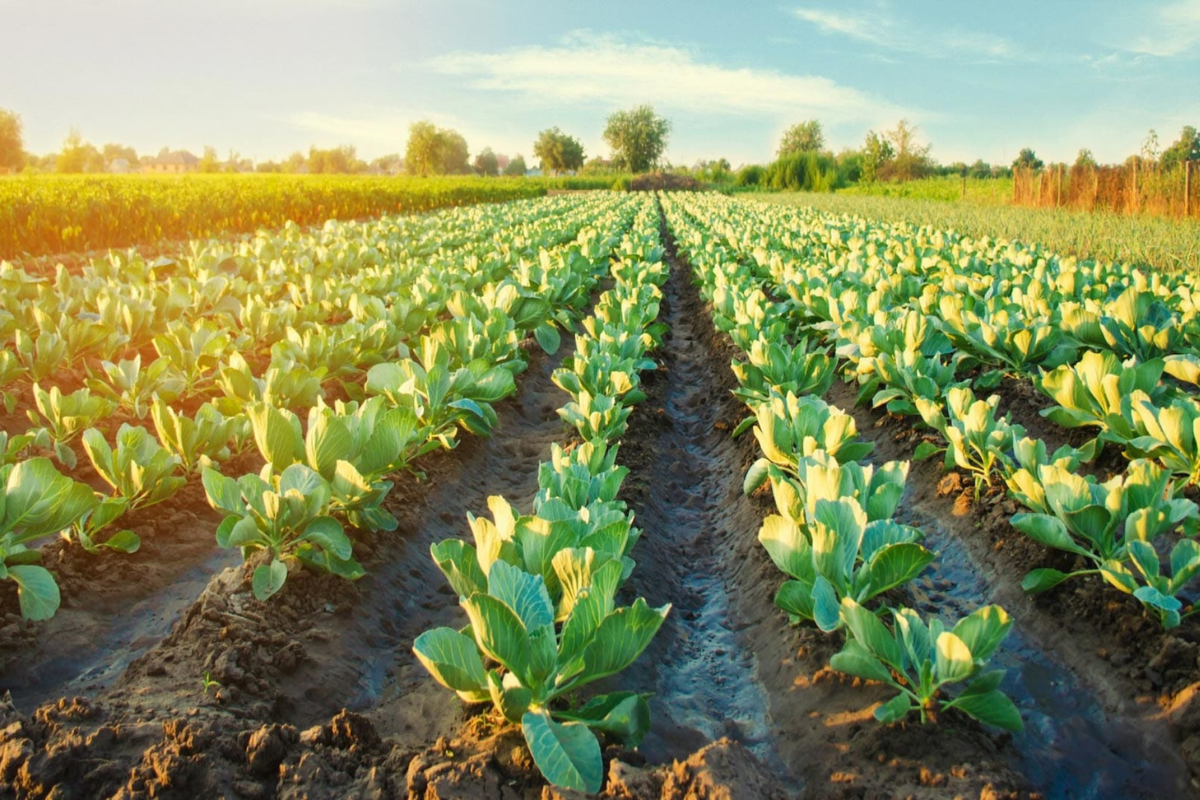Agriculture has been termed the backbone of India’s economy. This is true, especially in rural areas, where it provides livelihoods for a large portion of the population.
However, as the world is evolving, it faces new challenges. With climate change, population growth, and resource depletion, the conventional methods of farming are so long enough to meet the demand for food.
Agricultural entrepreneurship has emerged as a dynamic and innovative solution, transforming agriculture into a profitable and sustainable business model.
This blog discusses how the shift from traditional farming to entrepreneurship in agriculture is closing the development gap between urban and rural regions.

Table of Contents
The Rise of Agricultural Entrepreneurship: Transforming Farming into a Profitable Business Model

Entrepreneurship in agriculture has brought rapid development to the farm sector, turning it into an opportunity to begin a profitable business venture.
This shift from conventional farming techniques to a more business-like approach comes from the need to boost productivity, profitability, and sustainability, offering lucrative rural entrepreneurship prospects.
Entrepreneurship in agriculture is not merely about growing crops and maintaining livestock; it is about implementing entrepreneurial skills and techniques to yield more value-added end-products, reach newer markets, and come up with innovative solutions to farming challenges and contribute to the agricultural economy.
The rise of entrepreneurship in the agricultural sector has come up for many reasons.

Increased Global Population
The global population is expected to reach about 9.8 billion by 2050, leading to an ever-increasing demand for food. This leads to several entrepreneurial opportunities in rural agriculture for farmers and related agribusinesses to expand their businesses and reach new markets.
Sustainability and Environmental Responsibility
The heightened focus on sustainability and environmental responsibility, such as organic farming and agroforestry, is also one of the main reasons for the rise in agricultural entrepreneurship.
Financial Support Systems
Agricultural entrepreneurship has also emerged due to the availability of financial services and other support systems that assist farmers in acquiring the resources they need to expand their operations. Governments, NGOs, and private sector organizations have recognized the importance of entrepreneurial activities in agriculture and are offering significant financial aid, training, and technical support to help farmers thrive.
Rural Development
The shift to entrepreneurship in agriculture can largely be attributed to increased household income and economic development in many rural communities. By adopting entrepreneurship in agriculture, farmers are not just improving their livelihoods but are also contributing to the rural economy of their regions.
The Rise of Agricultural Entrepreneurship: Transforming Farming into a Profitable Business Model
Technology has played a crucial role in the progression of entrepreneurship in agriculture. From mechanization to digital tools, technology is continuously enhancing the productivity and efficiency of farming techniques, allowing farmers to have greater yields with fewer resources.
Precision Farming
Precision farming is one of the most valuable technological advancements in agriculture. It employs data-driven approaches to optimize farming techniques, ensuring every crop receives the right amount of water, nutrients, and care at the right time. Besides boosting the overall crop yield, it reduces waste generation, making farming more sustainable and profitable.
By utilizing tools such as GPS-guided trackers, drones, and sensors, farmers can supervise their fields with impressive accuracy, letting them make strategic decisions to maximize their productivity while reducing their environmental footprint.
Digital Information Services
Digital information services offer farmers accurate data on weather conditions, market prices, and techniques, assisting them in decision-making.
For instance, mobile apps and other digital service platforms let farmers access data on weather forecasts and agricultural advice with a few clicks on the screen. This is especially advantageous in rural regions where access to information and other helpful resources is restricted.
Internet Finance Platforms
Technology has also been helping farmers with issues such as production credit and financial services. Traditionally, small farmers have struggled to secure their financing due to the unpredicted nature of agriculture.
However, internet finance platforms and mobile banking services are permitting farmers to access the credit they need to invest in their businesses without collateral.

Sustainable Practices in Agricultural Entrepreneurship: Balancing Profit and Environmental Responsibility
While the aim for profit is the fuel to entrepreneurship in agriculture, it is crucial to ensure that farming practices are sustainable and environmentally responsible. As the world faces new challenges, the need for sustainable agriculture increases.
Entrepreneurship in agriculture offers a unique opportunity to balance profit with environmental responsibility, creating benefits for farmers, consumers, and the planet.
Crop Rotation
One of the most basic principles of sustainable agriculture is the adoption of sustainable agricultural activities that reduce the environmental footprint of farming operations. This includes techniques such as agroforestry, organic farming, and crop rotation, all of which help to maintain soil health, reduce water wastage, and protect biodiversity.
By adopting these sustainable practices, farmers can enhance their productivity and profitability as well as reduce their environmental footprint.
For example, crop rotation comprises shifting the types of crops grown on cultivated land to preserve soil fertility, decrease the dangerous risk of pests and diseases, and yield cleaner production. This practice also eliminates the need for chemical fertilizers and pesticides, which can have terrible effects on the environment and the health of the end user.
Likewise, agroforestry involves integrating shrubs and trees into agricultural landscapes., which aids in improving soil structure, saving water, and creating a habitat for wildlife.
Organic Farming
Organic farming is also a key factor in sustainable agricultural entrepreneurship. By avoiding synthetic chemicals and aiming for natural methods of pest control and fertilization, organic farming fosters the health of both the environment and the end-users. Organic farmers usually employ compost, cover crops, and biological pest control to preserve soil fertility and protect their crops.
Although organic farming can be more labor-intensive than traditional methods, it yields products of higher quality at lower production costs, which can lead to premium prices on the market.
Efficient Use of Resources
Another crucial aspect of sustainable agriculture is the efficient use of resources. This includes reducing water use, decreasing waste generation, and reducing energy consumption. For instance, drip irrigation systems enable farmers to get water directly to the roots of their plants, reducing water usage by up to 60%.
Similarly, using renewable energy sources such as solar and wind power can significantly reduce the carbon footprint of farming activities while reducing energy expenses.
ALSO READ:
- Maximizing the Economic Impact of Sustainable Agriculture
- Opportunities and Challenges Associated with Sustainable Agriculture
- Sustainable Livelihood Program: A Blueprint for Rural Transformation
Conclusion
Agricultural entrepreneurship is redefining the agrarian sector, transforming traditional farming techniques into profitable business models.
This shift has risen due to the increased demand for food globally and the need to embrace sustainability and utilize technological advancements.
By adopting innovative methods and sustainable practices, agricultural entrepreneurship can not only boost productivity but also address environmental concerns.
The adoption of sustainable farming methods can effectively demonstrate how modern agriculture can bridge the gap between rural and urban areas, fostering economic growth and environmental responsibility.

FAQs
Who is the father of farmers in India?
Mankombu Sambasivan Swaminathan is an agricultural scientist who is regarded as the father of farmers in India.
What does entrepreneur mean in agriculture?
An entrepreneur in agriculture is someone who adopts an innovative approach, entrepreneurial behaviour, sustainable development, and business acumen to achieve their agricultural development goals.
Who is the father of entrepreneurship?
The father of entrepreneurship is often attributed to Austrian economist Joseph Schumpeter.










[…] the larger umbrella of the National Action Plan on Climate Change (NAPCC), was designed to ensure sustainable development in agriculture by promoting efficient farming practices, resource management, and […]
[…] moral upliftment of the community was still at the front. His measures for education, health, and rural development elicit a deep understanding of the Parsi beliefs and values. The legacy of Ratan Tata is a reminder […]